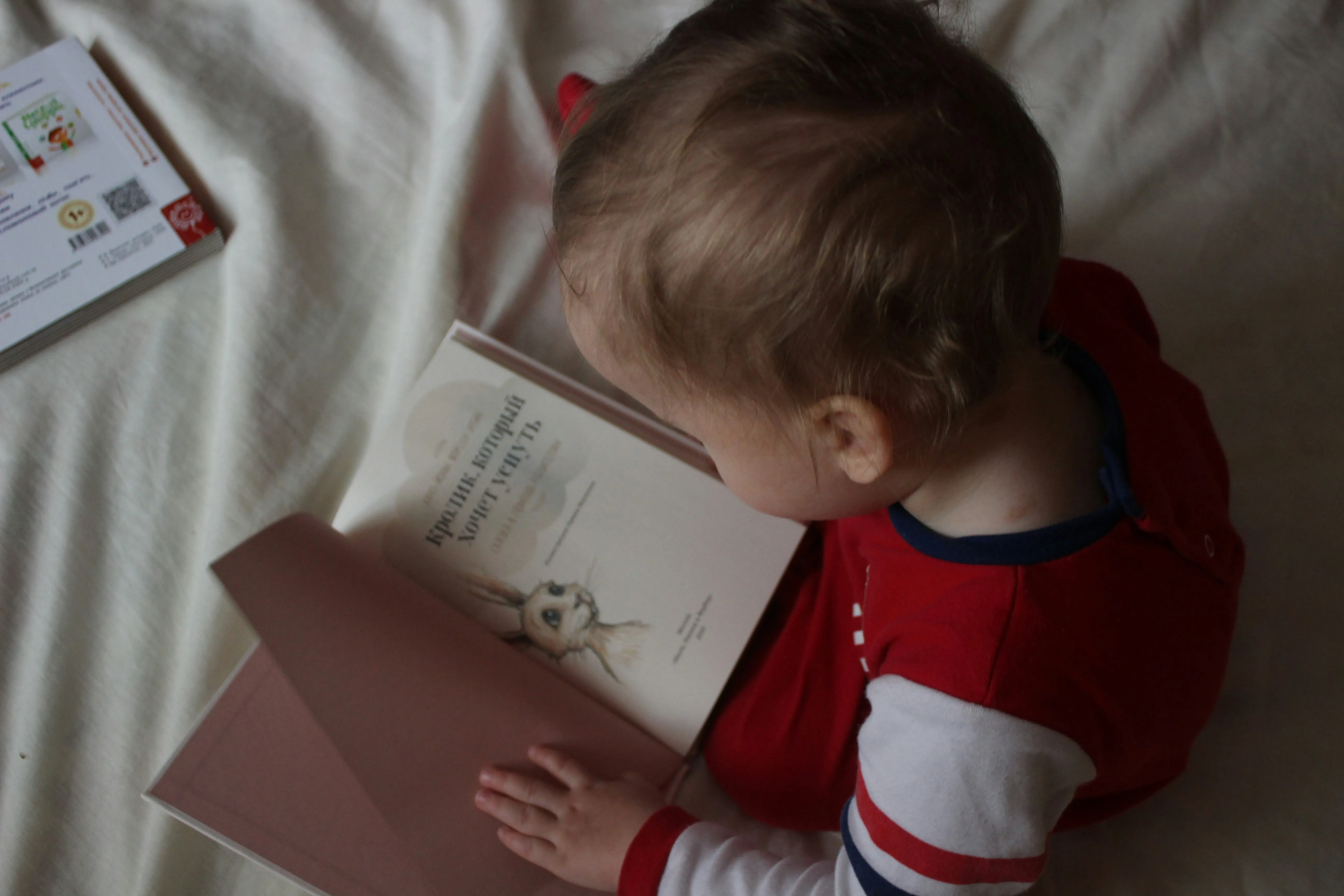10 Creative Ways to Foster a Love of Reading in Kids

Key Highlights
- Cultivating a love for reading in children offers lifelong benefits, stimulating cognitive development, broadening vocabulary, and fostering imagination.
- Creating a reading-friendly environment with cozy reading nooks and incorporating reading into daily routines can foster a consistent reading habit.
- Selecting books that align with a child's interests is key to making reading an enjoyable experience.
- Leveraging technology with audiobooks and interactive reading apps can further enhance the reading experience for tech-savvy youngsters.
- Regular visits to libraries and bookstores can open doors to new literary adventures and make discovering books a fun outing.
Introduction
In a world full of digital distractions, it's crucial to teach children the importance of reading. Starting a habit of reading early can help spark their imagination, boost their knowledge, and support their emotional growth. Reading gives them key literacy skills and builds a love for learning that can last a lifetime. Let's look at some fun and practical ways to make reading a big and enjoyable part of your child's life.
10 Creative Strategies to Encourage Reading Among Children
 Helping children love reading can be fun and easy. You can spark their curiosity and make books their friends by adding creativity and enjoyment. It's important to make reading a rewarding experience, not just another item on their list.
Helping children love reading can be fun and easy. You can spark their curiosity and make books their friends by adding creativity and enjoyment. It's important to make reading a rewarding experience, not just another item on their list.
Start this journey by knowing what your child likes. Set up a lively reading space and be a good reading example for them. With the right approach, reading can change from a school task into a favourite hobby.
1. Create a cozy reading nook
Transform a quiet spot in your home into a place for reading. A cozy reading nook is inviting when you add comfy cushions, soft blankets, and good lighting. This area helps you focus on the joy of reading. Encourage your child to make this space their own by adding their favourite books, posters of loved characters, or even artwork inspired by their reading adventures.
These personal touches turn the nook into a little part of their imagination. Set a rule that electronics should stay out of the reading nook. This will be a space to disconnect from the digital world and enjoy a good book.
As time goes by, this special space will hold positive feelings related to reading. This makes them more likely to find comfort and peace in their little book haven.
2. Incorporate reading into daily routines
Making reading an important part of your child's daily routine is key to helping them form a strong reading habit. This goes beyond just bedtime stories. You can involve them in reading recipes while baking, let them read the instructions for a new game, or encourage them to read signs and billboards while you drive.
These simple actions help show the importance of reading in everyday life. Even spending 15 minutes each day on reading can help. Choose a specific time, like after school or before bed, to make it a regular part of their day.
By including reading in everyday moments, you help it feel normal, not just a chore. This makes them more open to picking up a book by themselves.

3. Choose books based on interests
Nothing gets a child excited about reading like a book that matches their interests. Pay attention to their favourite themes, hobbies, and characters, and pick books that connect with them. If they like animals, show them fun wildlife books or touching stories about animal friends.
For kids who are curious about space, a colourful book about the solar system or an exciting space journey could grab their attention. The joy of reading grows a lot when it's about things they like. Let them pick their books at the library or bookstore. This lets them take charge of their reading adventure.
Let’s not forget, reading should be fun, not a task, but an exciting trip into the worlds they want to explore!
4. Use technology to enhance reading
We live in a digital world. Technology can help give kids fun reading experiences, especially if they like using devices. You can start using audiobooks during long trips. This way, they can enjoy stories even if they cannot read them right now.
Interactive apps with animations and sounds can make reading more exciting. They also help with word pronunciation and vocabulary. You can look for educational games that boost skills like spelling, vocabulary, and reading comprehension.
It’s important to use technology to support reading, not to take its place. Make sure to balance screen time with physical books. This helps kids build a love for reading in all its forms.
5. Visit libraries and bookstores together
Make trips to libraries and bookstores a family event. This turns finding new books into a fun adventure. The large selection can be a lot, so help your child look around. Encourage them to check out different sections, try various genres, and find new authors.
Libraries usually have reading programs, workshops, and author events. These can make the reading experience better and create a community around books. Let your child pick books that interest them, no matter what genre or how long they are.
The fun of looking, picking, and bringing home new stories adds to the joy and excitement of starting a new reading adventure.
6. Discuss books as a family
Make talking about books a part of family meals or car rides. Ask your child about what they are reading now, their favourite characters, the story, or what made them laugh or think differently.
Having these chats improves their comprehension skills. It helps them see reading as something you all enjoy together. It doesn't need to be formal or deep. Simple questions like "What was the most exciting part?" or "If you could be any character in the story, who would you choose and why?" can encourage them to think and talk about books.
These conversations create a love for literature and show that the family values and enjoys reading together.
7. Encourage writing as a way to engage with reading
Writing and reading go hand in hand. When you help your child write, it can boost their love for reading. Ask them to write their own stories, poems, or even keep a journal of their daily thoughts and activities.
You can motivate them to come up with new endings for their favourite books or create scripts for plays based on what they've read. If they like art, suggest they draw comics or graphic novels based on their favourite books.
These activities improve their creativity and writing skills. They also help them connect more deeply with literature. This way, they will appreciate storytelling in many forms.
8. Provide access to a wide range of reading materials
Expose your child to different reading materials, not just novels and storybooks. Have a mix of genres and formats at home, like comics, magazines, newspapers, cookbooks, and non-fiction books on topics that interest them.
This helps broaden their horizons. It introduces them to various writing styles and lets them find what they like. Let them explore these materials at their own pace. Don't force them to read everything from start to finish.
Even short moments with these materials can spark their curiosity, grow their vocabulary, and improve their understanding of the diverse world of literacy.
9. Set challenges and rewards
While it is good to focus on intrinsic motivation, some healthy competition can also help. Create reading challenges that match your child's age and reading level. This can be as easy as reading a certain number of pages each day or finishing a book in a set time.
Set up a reward system to celebrate what they accomplish. These rewards do not need to be big; they could be choosing a family activity, getting a small toy, or enjoying an extra bedtime story.
The important thing is to link success with positive rewards. This helps them feel proud of their reading growth. Always remember to praise their effort and enthusiasm more than the number of pages they read or the books they complete.
10. Lead by example by reading yourself
Children watch closely and often copy the behaviours of adults they look up to, especially their parents and caregivers. Show that you love reading by taking time to read for yourself.
Make it clear that you see reading as important for fun and relaxation. Share little pieces of what you are reading with your child, and start conversations about the book's themes, characters, or your feelings about the story.
When children notice that reading is an important part of your life, they are more likely to see it as something good and enjoyable. This can inspire them to build their own reading habits and make reading a part of their lives too.
11. Never stop reading
As your child gets older and their reading skills improve, don't forget how important it is to keep sharing books. Even if they can read chapter books by themselves, taking the time to snuggle up and listen to a story read out loud can strengthen your bond. It also keeps the joy of reading alive.
Pick books that lead to good conversations about feelings like empathy, resilience, kindness, and diversity. Use this time to talk about what happens in the book, the choices the characters make, and how the story connects to their own lives.
These moments together create a special routine. They help open communication and share a love for storytelling, making reading a cherished part of their life.
The Impact of Reading on Child Development

Reading is more than just fun; it's a strong way to help children grow their minds, social skills, and emotions. Besides improving literacy skills, reading helps children imagine, understand others, and think critically.
It lets them see new viewpoints, expands their view of the world, and gives them important life skills that are useful beyond what they read.
Boosts cognitive development
Reading is a great exercise for young minds. It helps develop their thinking skills and improves important abilities like memory and attention. When children read, they learn to understand words, follow stories, and picture different settings. This activity helps their brains make new connections, which boosts their comprehension and problem-solving skills.
Regular reading can also widen their vocabulary and build strong reasoning abilities. It helps children understand how language works better. This mental activity creates a strong base for their future learning and equips them with important tools from a young age.
Additionally, the problem-solving skills they gain from figuring out story twists, understanding why characters act a certain way, and thinking about what might happen next are helpful not only in school but also in their personal lives.
Enhances language skills
Exposure to rich vocabulary and different writing styles through reading is very important for a child's language skills. When they see new words in context, they learn their meanings and how to use them. This helps them to steadily grow their vocabulary and communication skills.
Reading aloud helps with pronunciation, tone, and flow. This builds a foundation for being confident in public speaking and expressing oneself well. Reading doesn't just expand vocabulary; it also encourages a love for language. It allows children to play around with words, use figurative language, and try creative writing.
It develops a better appreciation for the details of language. This helps them express emotions, ideas, and imagination more clearly. In the end, this helps them become better and more effective communicators.

Conclusion
In conclusion, helping children love reading is important and rewarding. It can significantly help their growth. You can use fun ideas like setting up a comfy reading spot, including reading in everyday tasks, and talking about books as a family. This can build a lasting love of reading in your child. Also, remember to lead by example and keep reading with them. These are strong ways to spark their interest in books. So, enjoy reading together and see how your child's imagination and knowledge can grow!
Frequently Asked Questions
How can I make reading fun for my child?
Reading should be a lot of fun, not a task! You can check out your favorite books together. You could create book clubs as a family. Enjoy some snacks while reading aloud. You can also plan themed trips to the local library.
What if my child doesn't like reading?
Reluctant readers may need different methods to read. You can invite students from your child’s middle school or an older student to share their love of reading. It’s also a good idea to talk to their classroom teacher for custom strategies that may help.
Reference:
https://www.reachoutandread.org/
https://www.renaissance.com/products/accelerated-reader/
https://www.hachettebookgroup.com/titles/pamela-paul/how-to-raise-a-reader/9781523505302/
Related Articles :
The Complete Guide to Early Literacy: From Prenatal to Primary School
Phonological Awareness: The Symphony of Language Learning
Tales, Teaching, and Tiny Voices: The Power of Early Narrative Skill

Written with Augmented Intelligence and SHiNER THE HUMAN






































































































































